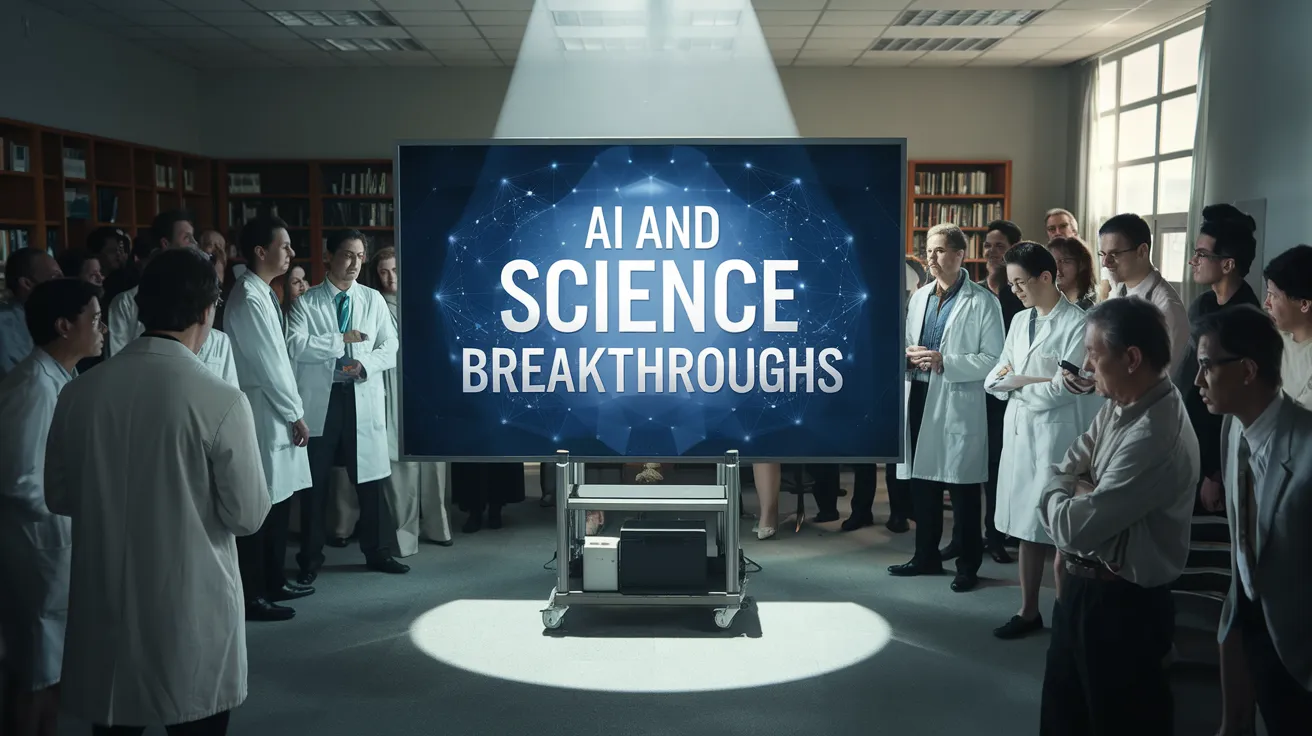AI Advancing Science Through Breakthroughs

Artificial intelligence (AI) is significantly transforming the scientific landscape, providing insights into long-standing human questions and accelerating discoveries. Recent progress, especially in fields like AI and quantum computing, marks a sharp contrast to the slower evolution of science observed in earlier decades. As these technologies evolve, they are poised to enhance human life and solve critical issues facing society.
AI for Science Forum: A Collaborative Effort
The Royal Society, in collaboration with Google DeepMind, hosted the inaugural AI for Science Forum in London, uniting scientists, policymakers, and industry leaders. This event aimed to showcase AI’s transformative potential in accelerating scientific research and innovation through public-private partnerships.
Groundbreaking Achievements in Scientific Research
Here are nine pivotal advancements that illustrate the role of AI in scientific progress:
- Protein Structure Prediction Revolutionized
In 2022, Google DeepMind tackled one of science’s long-standing challenges: predicting protein structures. Their AlphaFold 2 model predicted the structures of 200 million proteins in minutes, vastly outpacing traditional methods. This new capability supports advancements in medicine and biotechnology, allowing researchers to combat antibiotic resistance and innovate solutions to plastic pollution. - A New Look at the Human Brain
Collaborating with Harvard’s Lichtman Lab, Google spent over a decade mapping areas of the human brain in unprecedented detail. Released in 2024, this mapping project unveiled new structures and made its comprehensive dataset publicly accessible, thereby pushing forward neurobiological research. - Enhanced Flood Forecasting
Since its inception in 2018, Google’s flood forecasting project has showcased the power of AI in predicting extreme weather. By 2024, it successfully provided flood alerts to over 100 countries, helping protect millions of lives through effective warnings. - Improved Wildfire Detection
In response to increasing wildfire threats, Google and the U.S. Forest Service developed FireSat in 2024. This AI model detects small wildfires quickly, delivering higher-resolution images within just 20 minutes. Such advancements will enable timely responses from firefighting authorities. - Accurate Weather Predictions
Google DeepMind’s GraphCast, launched in 2023, successfully predicts weather up to 10 days in advance with remarkable accuracy. This system outperforms traditional models and offers critical insights, particularly for predicting severe weather events. - Advancements in Mathematical Problem Solving
In 2024, Google DeepMind introduced AlphaGeometry, which tackled complex geometry problems with near-human-level proficiency. This breakthrough indicates a significant stride toward developing more capable AI systems for broader applications. - Quantum Computing for Chemistry
Google researchers collaborated with universities to execute extensive chemistry simulations on quantum computers. The results confirmed predictions made by classical methods, indicating potential improvements in chemical research and applications. - Discovering Sustainable Materials
With the introduction of GNoME, an AI tool, Google DeepMind identified 380,000 stable materials which could revolutionize fields ranging from energy storage to solar technology. Making this information publicly available encourages widespread innovation in sustainable practices. - Progress Toward Nuclear Fusion
Google DeepMind made headlines in 2022 with its development of an AI system capable of autonomously stabilizing plasma in nuclear fusion reactors. This breakthrough represents a pivotal advancement towards harnessing fusion energy, offering hope for clean and abundant energy sources.
These achievements highlight the synergistic power of AI and science, demonstrating how technological advancements are paving the way for substantial impacts across various fields. The potential for further innovation is vast, indicating that a brighter future led by science and technology is within reach.